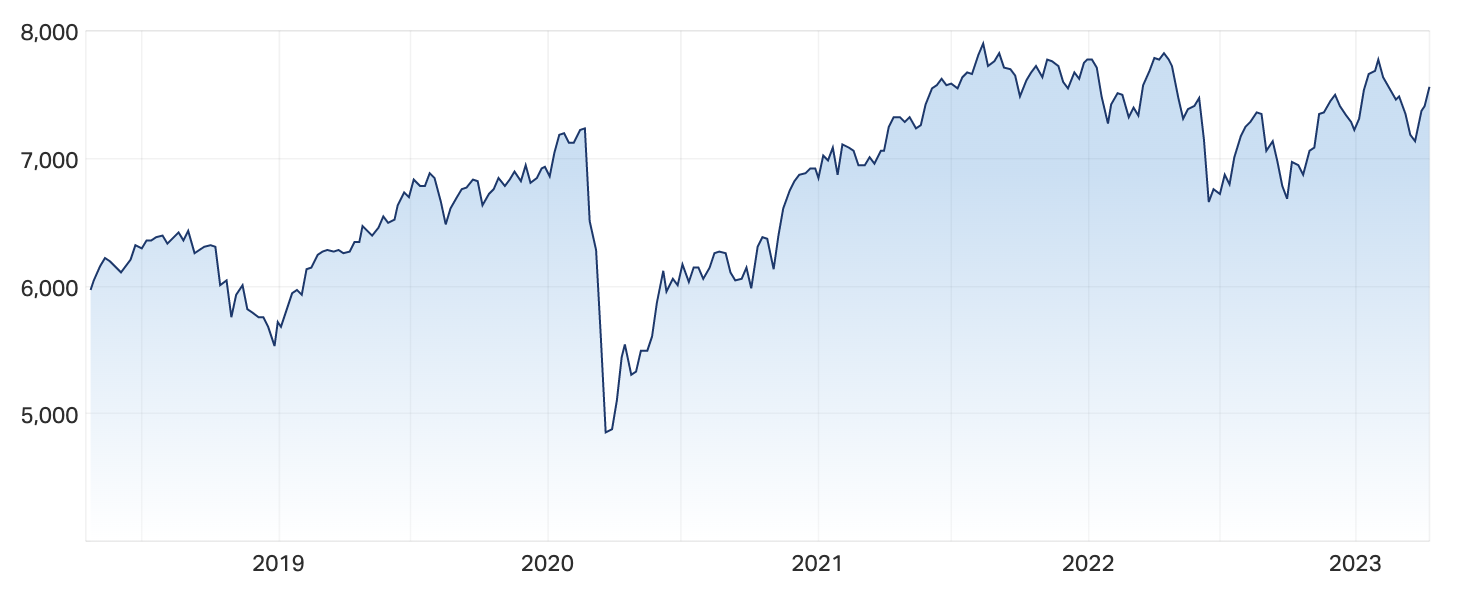Why Steve Johnson would rather hold cash than defensives right now
Over the last few weeks, investors have been bombarded with a true litany of conflicting fund manager opinions on where to best invest in today's market.
For one manager, it's unloved quality stocks, for another, beaten-down growth darlings. We've heard endorsements for financials, praises for Australia's mining sector, and hints of a new battery-led commodity supercycle. We've pored over pages dedicated to diversification, and then raised our brows as defensives (now incredibly expensive) continue to receive the lion's share of investor funds.
But if there is one man who is always willing to say it how it is, it's Forager's Steve Johnson.
With a 16.8% cash weighting, Forager's Australian Shares Fund is holding around $24 million in cash. That's a lot. He usually would hold around 10%.
In case you were jumping to conclusions (I know I sure did), this is not some sort of macro bet. Johnson and his team aren't banking on the market heading lower. It's just that Forager's Australian equities team can't see many attractive opportunities in defensive large caps.
"We're finding really attractive risk-reward in a certain type of stock that we don't necessarily want more exposure to across our whole portfolio and not finding enough risk-reward at the more liquid, larger end of the market," Johnson says.
In this wire, Johnson divulges why he is holding so much cash today, shares why he's avoiding expensive defensives, and highlights why the worst could be over for small-cap industrials.
Plus, with nearly 75% of the portfolio invested in small and micro caps, he names some of the stocks he's backing right now.
Note: This interview took place on Thursday 14 April 2023. On Friday 15 April, I accidentally called Steve and asked him which herbs I needed to buy to make bolognese before he could get a word in. We've all been there, right? Right?!? Sorry, Steve.
.jpg)
The ASX isn't particularly cheap
Earlier this month, the Reserve Bank of Australia did something that investors and mortgage holders had long prayed for - it paused its hiking cycle.
At the time, RBA Governor Philip Lowe said the decision would allow the central bank to assess the "state of the economy and the outlook, in an environment of considerable uncertainty."
Markets responded accordingly, with the All Ordinaries lifting around 2% since then. But Johnson believes investors could be celebrating prematurely.
"I think it's still a really fine line in terms of whether the RBA needs to raise rates further or not. And I think the optimism around rate cuts into next year is probably overdone," Johnson says.
"There is a path here that is just 3.5% to 4% interest rates for the next five to 10 years, rather than we're up and then we're down, which is how the market is forecasting rate cuts."
This would give central banks the capacity to stimulate the economy (and cut) in difficult economic times, and also would suggest fairly stable prices, he adds.
"I actually think 3.5% to 4% would be a really healthy base rate of interest in the economy where people would make rational economic decisions about where to allocate capital," Johnson says.
"That's central bank nirvana. That's economic nirvana. But you don't always get what you want, so they're going to have to react to what happens over the next couple of years."
Today, given rates are currently at 3.6% and where the ASX is trading, equities don't look particularly cheap, Johnson says.
"It's not like we're sitting here saying we're priced for substantially higher rate rises. The All Ords is near record highs. It's not even down substantially," he says.

One area that has fallen substantially, though, is small-cap industrials (non-miners). If we're being honest, it's been a bloodbath.
"We are getting close to the point, even if there are a couple more rate rises, where the worst has to be behind us," Johnson says.
"Although, I think you probably need a recession for that particular sector to start working again because nobody wants to buy it until it happens."
You won't get burnt owning expensive defensives, but you're unlikely to see above-market returns
Since the beginning of the year, defensive stocks have become the market du jour, with stocks like Cochlear (ASX: COH), ResMed (ASX: RMD), Woolworths (ASX: WOW), Coles (ASX: COL) and Telstra (ASX: TLS) all appreciating significantly.
While Johnson doubts that investors would get burnt from owning Cochlear or Resmed, for example, he doesn't believe they can continue to generate returns above the market average of 8-9% per annum. You could, however, expect those kinds of returns from owning a broad-based ASX-tracking ETF, he argues.
"The price of not having to suffer through a recession is that you’re sacrificing long-term returns. When you're paying 40 times multiples for these companies that are not growing like crazy anymore, you're probably going to earn sub-market long-term returns," he says.
"I think it's the opportunity cost of safety, that's the bigger issue. And you miss out on some very attractively priced areas of the market that come with more uncertainty."
Like many investors today, Johnson has a lot of cash sitting on the sidelines. Like many, he is contemplating when and how to deploy this cash.
"Nitro Software (ASX: NTO) and MSL Solutions (ASX: MSL) were both taken over and then we've taken some money off the table with Tourism Holdings (ASX: THL) and Gentrack (ASX: GTK) performing quite well," he says.
"If we find stocks at the right price, we'll buy them and that cash float will go down. But we have so much small-cap exposure and so much exposure to recovery that I'm quite comfortable with a barbell-type approach of holding a fair bit of cash and having pretty pointy small caps at the other end of the spectrum."
So where are Johnson and the team investing?
"We want to invest in sectors and stocks that will do well or not suffer too much if a recession comes along. I'm not saying it won't happen. We're preparing for that possibility," Johnson says.
He points to the healthcare sector as an example - one which has been suffering recently thanks to cost inflation and labour availability.
"If we have a recession, those problems go away, and the revenue side of things is very, very predictable and reliable. And they've just been given inflation indexation on next year's cost recovery from Medicare," Johnson says.
"It's historically been one that people flock to, but everyone's so worried about the cost side of things at the moment that there are some cheap stocks there."
For example, Integral Diagnostics (ASX: IDX), which is currently a top-five holding in the fund, as well as Paragon Care (ASX: PGC) and Healthia (ASX: HLA).
He's also backing a few profitable beaten-down tech small caps.
"Because share prices have been going south, people have forgotten that the recurring annuity-style revenue side of these businesses is typically more predictable than most other businesses," he says.
"If we have a bad recession and interest rates get cut and inflation falls, I think you're going to see these characteristics become more prominent than they have been over the past 12 months."
Johnson points to profitable companies such as ReadyTech (ASX: RDY) and RPMGlobal Holdings (ASX: RUL) - both top-five holdings right now.
While Johnson doesn't own them, he also believes investors would do "fine" in larger tech names like REA Group (ASX: REA), carsales.com (ASX: CAR) and Xero (ASX: XRO), in comparison to the Megaports (ASX: MP1) and Zips (ASX: ZIP) of the world.
"I still look at the valuation of Megaport and shake my head."
Want to learn more?
If you share Steve's passion for unloved bargains and have a long-term focus, click here to learn more about Forager. If you enjoyed this wire, you can follow Steve here for more of his insights.
For all of Forager's latest content, videos, podcasts and fund reports, register here.
4 topics
19 stocks mentioned
1 contributor mentioned

.jpg)
